📚Best Books
This list encompasses a diverse range of books that explore various themes and ideas, offering insights into human behavior, resilience, and decision-making. Each title presents unique perspectives that challenge conventional thinking and encourage readers to reflect on their own experiences.
- 1

"Antifragile: Things That Gain from Disorder" by Nassim Nicholas Taleb is a groundbreaking exploration of systems and entities that thrive and grow stronger in the face of stress, volatility, and chaos. Taleb introduces the concept of "antifragility," which goes beyond resilience or robustness. Through a mix of philosophy, practical wisdom, and real-world examples, Taleb illustrates how embracing uncertainty and leveraging disorder can lead to success and innovation. This book is essential for anyone interested in risk management, personal development, and understanding how to benefit from uncertainty and change.
- 0

What I Talk About When I Talk About Running is a memoir by Haruki Murakami where he talks about two things that define a big part of his life: running and writing. Murakami didn’t always plan on being a novelist. He was running a jazz bar in his twenties when, while watching a baseball game, he suddenly thought, “I could write a novel.” He gave it a shot, it worked out, and he eventually sold his bar to focus on writing full-time. But sitting at a desk all day, smoking and not moving much, wasn’t doing his health any good. That’s when he picked up running. For Murakami, running is more than just exercise—it’s part of his routine and, in a way, a metaphor for writing. Both take endurance. Both are long hauls where you push yourself day after day, even when you don’t feel like it. The book follows him as he trains for marathons, competes in triathlons, and grapples with the slow decline of his physical abilities as he ages. He talks a lot about acceptance—accepting getting older, accepting bad race times, and accepting that sometimes you just don’t do as well as you hoped. His attitude is basically: That’s life. You move on. The writing style is straightforward, like he’s just talking to you over a coffee. He doesn’t dress things up. Sometimes he rambles, mentioning things like cycling habits or going off on tangents about global warming. At one point, he describes running the original marathon route in Greece—sun blazing, salt stinging his eyes, everything uncomfortable. But through it all, there’s this calm acceptance. He’s not trying to convince anyone to run; he just shares what it means to him. By the end, what sticks isn’t just the running or the writing, but the way he embraces both the highs and the lows—the post-race blues, the joy of finishing, and the satisfaction of something as simple as a cold beer after a long run. It’s a book about effort, routine, and learning to keep going, no matter what.
- 0

Skin in the Game may be nice but The Black Swan is the OG Nicholas Taleb. Read this book to learn how to think and avoid biases and reread at least once very couple of years.
- 0

"Project Hail Mary" is a space adventure story written by Andy Weir, the same guy who wrote "The Martian." It's about a man named Ryland Grace who wakes up on a spaceship with no memory of who he is or why he's there. He figures out he's on a mission to save Earth from disaster. The story follows him as he tries to remember his past and complete his mission, which involves a lot of science and problem-solving. Along the way, he meets an alien, and they form an unlikely friendship. The book is full of cool science stuff, suspense, and humor. It's like a mix of a mystery and a space adventure, with a lot of heart. The narration by Ray Porter is superb, with sound effects and excellent voice work.
- 0

Modern healthcare is often reactive. This is part of the reason why preventative medicine is so key.
- 0

Even the smartest among us can feel inept as we fail to figure out which light switch or oven burner to turn on, or whether to push, pull, or slide a door. The fault, argues this ingenious -- even liberating -- book, lies not in ourselves, but in product design that ignores the needs of users and the principles of cognitive psychology. The problems range from ambiguous and hidden controls to arbitrary relationships between controls and functions, coupled with a lack of feedback or other assistance and unreasonable demands on memorization. The Design of Everyday Things shows that good, usable design is possible. The rules are simple: make things visible, exploit natural relationships that couple function and control, and make intelligent use of constraints. The goal: guide the user effortlessly to the right action on the right control at the right time. The Design of Everyday Things is a powerful primer on how -- and why -- some products satisfy customers while others only frustrate them.
- 0

David Ogilvy was considered the "father of advertising" and a creative genius by many of the biggest global brands. First published in 1963, this seminal book revolutionized the world of advertising and became a bible for the 1960s ad generation. It also became an international bestseller, translated into 14 languages. Fizzing with Ogilvy's pioneering ideas and inspirational philosophy, it covers not only advertising, but also people management, corporate ethics, and office politics, and forms an essential blueprint for good practice in business.
- 0

The best book about the best director in the world. It was such a great book it was adapted into a movie. Bet the other books on this list can't say that!
- 0

In his journal, Nobel Prize winner John Steinbeck called East of Eden “the first book,” and indeed it has the primordial power and simplicity of myth. Set in the rich farmland of California’s Salinas Valley, this sprawling and often brutal novel follows the intertwined destinies of two families—the Trasks and the Hamiltons—whose generations helplessly reenact the fall of Adam and Eve and the poisonous rivalry of Cain and Abel.
- 0

A book about the circadian rhythm. Apparently, it's really misunderstood, even by your doctor. Read this book to understand your body better. It helped me improve my sleep.
- 0

This is the only audiobook I've ever listened to lol. But it is a very interesting story about Elon, arguably the most interesting person alive.
- 0

From wikipedia: Meditations is a series of personal writings by Marcus Aurelius, Roman Emperor from AD 161 to 180, recording his private notes to himself and ideas on Stoic philosophy. Meditations are worth reading if only to get a glimpse at the thoughts of a man who lived a life in truly extraordinary circumstances of being a Roman Emperor. It's surprising how relevant the themes of his diaries are two thousand years later.
- 0

An electronics salesman who has been deserted by his wife agrees to deliver an enigmatic package— and is rewarded with a glimpse of his true nature. A man who views himself as the son of God pursues a stranger who may be his human father. A mild-mannered collection agent receives a visit from a giant talking frog who enlists his help in saving Tokyo from destruction. The six stories in this collection come from the deep and mysterious place where the human meets the inhuman—and are further proof that Murakami is one of the most visionary writers at work today.
- 0

She has entered, she realizes, a parallel existence, which she calls 1Q84 —“Q is for ‘question mark.’ A world that bears a question.” Meanwhile, an aspiring writer named Tengo takes on a suspect ghostwriting project. He becomes so wrapped up with the work and its unusual author that, soon, his previously placid life begins to come unraveled. As Aomame’s and Tengo’s narratives converge over the course of this single year, we learn of the profound and tangled connections that bind them ever closer: a beautiful, dyslexic teenage girl with a unique vision; a mysterious religious cult that instigated a shoot-out with the metropolitan police; a reclusive, wealthy dowager who runs a shelter for abused women; a hideously ugly private investigator; a mild-mannered yet ruthlessly efficient bodyguard; and a peculiarly insistent television-fee collector.
- 0

“I set out to write a book about what to do to make a great work of art. Instead, it revealed itself to be a book on how to be.” —Rick Rubin
- 0

Skin in the Game: Hidden Asymmetries in Daily Life is a nonfiction book by Nassim Nicholas Taleb, published in 2018. Taleb’s main point is pretty simple: people should share in the risks of the decisions they make. If you benefit from something, you should also face the downsides if things go wrong. He calls this having “skin in the game.” Without that, people can make reckless choices that hurt others while staying safe themselves. The book covers everything from politics and business to religion and everyday life. Taleb doesn’t hold back on criticism. He talks about how some policymakers and financial experts make decisions that affect millions but don’t suffer when those decisions backfire. He uses examples like bankers profiting during booms but getting bailed out during crashes. Taleb also goes after what he calls “Intellectual Yet Idiot” types—educated people who, in his view, complicate things and give advice without understanding real-world consequences. He argues that real knowledge comes from doing and risking something yourself, not just sitting in a classroom or writing articles. One part of the book dives into how stubborn minorities—like people who strictly follow certain dietary rules—can influence the majority’s choices without even trying. There’s even a section where he talks about religion, saying that the idea of God taking human form (in Christianity) is the ultimate example of having skin in the game. Taleb’s writing style is direct, sometimes blunt, and he isn’t shy about calling out what he sees as nonsense. The book is part of his Incerto series, which looks at uncertainty and risk in modern life. Some people love his no-nonsense approach; others find him a bit too combative. Either way, Skin in the Game is about accountability—if you play the game, you should be prepared to take a hit when things go south.
- 0

by George Orwell an expedition into who people are and what life is
- 0

Long Walk to Freedom is an autobiography by South Africa's first democratically elected President Nelson Mandela, and it was first published in 1994 by Little Brown & Co. The book profiles his early life, coming of age, education and 27 years spent in prison If you're new to South African history, as I was, this is a great starting point. Why not hear from the man who played a key part in it?
- 0

A Gentleman in Moscow is a historical fiction novel by Amor Towles. It follows Count Alexander Rostov, a Russian aristocrat who, after the Bolshevik Revolution, is sentenced to house arrest in the grand Hotel Metropol in Moscow. Instead of being imprisoned in a cell, he’s confined to the hotel, which becomes both his cage and his world. The story spans several decades, starting in the 1920s and running through key moments of Soviet history. Most of it unfolds inside the hotel, which is no ordinary place—it's a bustling, self-contained universe. Rostov, who begins the story living in a lavish suite, is forced to move into a tiny attic room. Despite this fall from grace, he navigates his new life with wit and charm, forming friendships with the hotel staff, guests, and unexpected visitors. The book isn’t just about the Count’s personal journey—it’s also about how time changes people and places, how history creeps in even when you’re standing still, and how small acts of kindness and loyalty can shape a lifetime. The setting, the Metropol, is richly described, from fine dining rooms to back corridors. There’s a good bit about food, music, and Russian culture, and plenty of philosophical musings, but it never gets too heavy. At its core, the novel is about making the best of what life throws at you. The Count is an old-world gentleman stuck in a new world that wants to forget people like him. How he handles that—sometimes with grace, sometimes with stubbornness—is what makes the book compelling. It's quietly dramatic, occasionally funny, and surprisingly heartwarming, all without needing big action scenes.
- 0

The great thing about this book is that it takes a big-picture view of human history. It attempts to explain the main themes of human history without getting bogged down in the details. Sapiens also debunks many popular myths about human history, including the one that people today live happier lives and have better diets than our hunter-gatherer predecessors. It comes with an epilogue about the future of humankind in light of ever-accelerating technological progress. With the recent advances in AI it is more relevant than ever. If you're going to read one book on history this year, read this one.
- 0

Born a Crime: Stories from a South African Childhood is Trevor Noah’s autobiography, published in 2016. It tells the story of his early years growing up in South Africa during and after apartheid. The title comes from the fact that his birth—he had a black Xhosa mother and a white Swiss-German father—was literally considered a crime under apartheid laws that banned interracial relationships at the time. The book is a mix of humor and tough truths. Much of it focuses on Trevor’s relationship with his mother, Patricia, who plays a huge role in his life. She’s portrayed as tough, religious, and fiercely independent—someone who dragged him to multiple church services every week, even during times of violence and unrest. Her strong influence shapes his character, often through strict discipline and sharp lessons about right and wrong. Trevor shares stories from his childhood that range from funny to intense. There’s a scene where his mother throws him out of a moving minibus to save him from a potentially dangerous driver. He also talks about using his talent for languages to navigate different cultural groups in South Africa, and how he hustled by selling bootleg CDs to make money. But not all his stories are light—he describes living with his abusive stepfather, Abel, whose violence culminated in him shooting Trevor’s mother, though she miraculously survived. Despite the heavy topics—racism, poverty, domestic abuse—Noah’s storytelling is funny, honest, and full of warmth. The book gives a personal look at how apartheid shaped everyday life but also highlights the resilience of his family, especially his mother. The memoir was widely praised, becoming a bestseller and earning spots on numerous “best of the year” lists. It struck a chord with readers around the world, and even inspired figures like U.S. Senator Tammy Duckworth and First Lady Jill Biden, who assigned it as reading for her English class. A film adaptation is in the works, with Lupita Nyong’o set to play Trevor’s mother and co-produce the project.
- 0
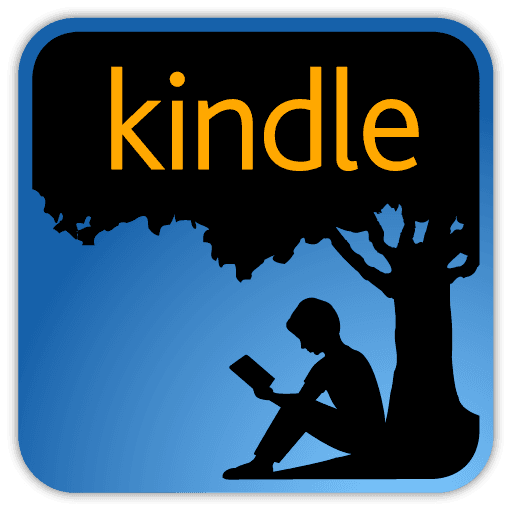
That's right, the Kindle can a great tool for learning Mandarin. You can download a free Chinese dictionary called CC-CEDICT. Then you can tap on any word to get the English translation and the pinyin. There are plenty of Chinese ebooks you can find online for free or purchase on Amazon. I used this method earlier this year to read a few chapters of Harry Potter and now I'm reading The Three-Body Problem by Liu Cixin.
- 0

Greek myths retold by Stephen Fry. He is both the author and the narrator of this book. His wit and sense of humor come across in both the text and in the delivery. Plus, you actually get to learn Greek myths.
- 0

Barbarian Days: A Surfing Life is William Finnegan’s story about growing up obsessed with surfing. It’s not just about catching waves—it’s about a whole way of life that’s demanding, addictive, and sometimes dangerous. Finnegan started young, learning to surf in California and Hawaii, and kept chasing waves into adulthood, traveling through places like Fiji, Australia, Indonesia, and Africa. Along the way, he mixes adventure with self-reflection, talking about friendships formed in the water, the culture around surfing, and how it all fit with the times—especially during the social changes of the 1960s and '70s. The book isn’t just about the thrill of surfing; Finnegan dives into the technical side of waves and the patience it takes to master them. He’s honest about his youthful recklessness—like taking LSD before surfing a massive wave in Maui—and the risks that came with his travels, from malaria scares to navigating shady markets. Still, surfing pulls him along, even when he’s juggling a career as a war reporter and later, family life. At its core, Barbarian Days is an old-fashioned adventure tale mixed with a thoughtful look at what it means to be hooked on something so completely. Finnegan’s writing captures both the beauty and the grind of surfing, making you feel like you’re right there with him—whether on a remote beach or paddling out into icy waves off Long Island.
- 0

Toru, a serious young college student in Tokyo, is devoted to Naoko, a beautiful and introspective young woman, but their mutual passion is marked by the tragic death of their best friend years before. As Naoko retreats further into her own world, Toru finds himself drawn to a fiercely independent and sexually liberated young woman. Stunning and elegiac, Norwegian Wood first propelled Haruki Murakami into the forefront of the literary scene.
- 0

In a Tokyo suburb, a young man named Toru Okada searches for his wife’s missing cat—and then for his wife as well—in a netherworld beneath the city’s placid surface. As these searches intersect, he encounters a bizarre group of allies and antagonists. Gripping, prophetic, and suffused with comedy and menace, this is one of Haruki Murakami’s most acclaimed and beloved novels.
- 0

"The Black Swan" by Nassim Nicholas Taleb is a seminal work that explores the profound impact of rare and unpredictable events, termed "Black Swans." Taleb argues that these events, which are often overlooked or underestimated, have massive consequences on our world. He highlights the limitations of traditional forecasting methods and emphasizes the need for resilience and adaptability in the face of uncertainty. Blending philosophy, economics, and personal anecdotes, Taleb provides a compelling critique of our understanding of risk and uncertainty. This book is essential for anyone interested in risk management, economics, and understanding the unpredictable nature of our world.
- 0

Ryland Grace is the sole survivor on a desperate, last-chance mission—and if he fails, humanity and the earth itself will perish. Except that right now, he doesn’t know that. He can’t even remember his own name, let alone the nature of his assignment or how to complete it. All he knows is that he’s been asleep for a very, very long time. And he’s just been awakened to find himself millions of miles from home, with nothing but two corpses for company. His crewmates dead, his memories fuzzily returning, Ryland realizes that an impossible task now confronts him. Hurtling through space on this tiny ship, it’s up to him to puzzle out an impossible scientific mystery—and conquer an extinction-level threat to our species. And with the clock ticking down and the nearest human being light-years away, he’s got to do it all alone. Or does he? An irresistible interstellar adventure as only Andy Weir could deliver, Project Hail Mary is a tale of discovery, speculation, and survival to rival The Martian—while taking us to places it never dreamed of going.
- 0

The Brand Gap is the first book to present a unified theory of brand-building. Whereas most books on branding are weighted toward either a strategic or creative approach, this book shows how both ways of thinking can unite to produce a “charismatic brand”―a brand that customers feel is essential to their lives. In an entertaining two-hour read you’ll learn: • the new definition of brand • the five essential disciplines of brand-building • how branding is changing the dynamics of competition • the three most powerful questions to ask about any brand • why collaboration is the key to brand-building • how design determines a customer’s experience • how to test brand concepts quickly and cheaply • the importance of managing brands from the inside • 220-word brand glossary
- 0
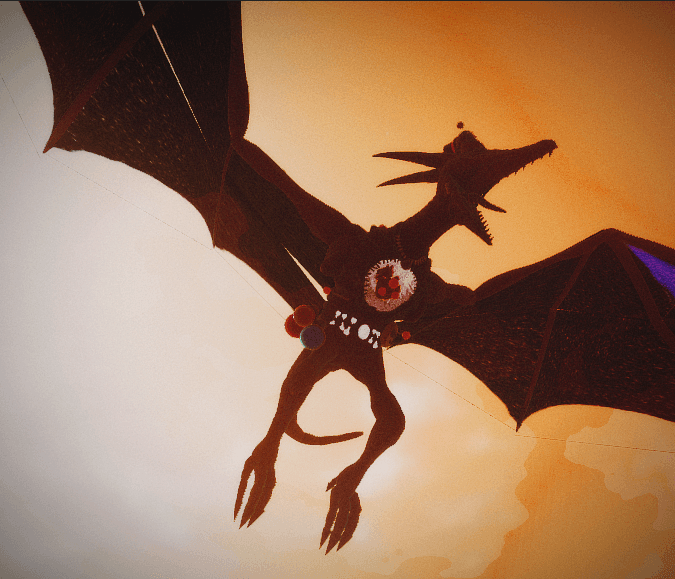
........................................................................................................................................................................................................................................................................................................................................................................................................................................................................................................................................................................................................................................................................................................
- 0
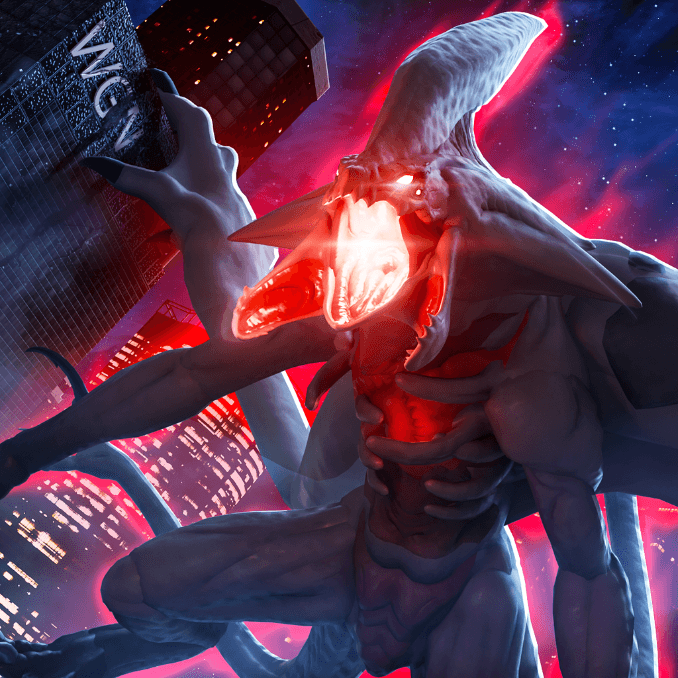
........................................................................................................................................................................................................................................................................................................................................................................................................................................................................................................................................................................................................................................................................................................
- 0

There are few creative acts more mysterious and magical than writing a song. But what if the goal wasn't so mysterious and was actually achievable for anyone who wants to experience more magic and creativity in their life? That's something that anyone will be inspired to do after reading Jeff Tweedy's How to Write One Song. Why one song? Because the difference between one song and many songs isn't a cute semantic trick—it's an important distinction that can simplify a notoriously confusing art form. The idea of becoming a capital-S songwriter can seem daunting, but approached as a focused, self-contained event, the mystery and fear subsides, and songwriting becomes an exciting pursuit. And then there is the energizing, nourishing creativity that can open up. How to Write One Song brings readers into the intimate process of writing one song—lyrics, music, and putting it all together—and accesses the deep sense of wonder that remains at the heart of this curious, yet incredibly fulfilling, artistic act. But it’s equally about the importance of making creativity part of your life every day, and of experiencing the hope, inspiration, and joy available to anyone who’s willing to get started.
- 0

Hajime has arrived at middle age with a loving family and an enviable career, yet he feels incomplete. When a childhood friend, now a beautiful woman, shows up with a secret from which she is unable to escape, the fault lines of doubt in Hajime’s quotidian existence begin to give way. Rich, mysterious, and quietly dazzling, in South of the Border, West of the Sun the simple arc of one man’s life becomes the exquisite literary terrain of Murakami’s remarkable genius.
- 0

Discover the secrets to a long, healthy, and fulfilling life with "Ikigai: The Japanese Secret to a Long and Happy Life" by Héctor García and Francesc Miralles. This insightful book delves into the Japanese concept of ikigai, or a "reason for being," which is believed to be a key factor in the remarkable longevity of the residents of Okinawa, a Japanese village known for having the world’s highest percentage of centenarians. Through interviews with these vibrant centenarians, the authors uncover how the principles of ikigai—where passion, mission, vocation, and profession intersect—contribute to their happiness and longevity. The book reveals the residents' daily practices, from their nutrient-rich diets and active lifestyles to their strong community bonds and purposeful work. "Ikigai" provides practical advice and tools to help readers discover their own ikigai, offering a blend of cultural wisdom and actionable steps towards a life filled with purpose, health, and joy. This book is a valuable resource for anyone interested in enhancing their well-being and finding deeper satisfaction in everyday life.
- 0

Jasmine Bashara never signed up to be a hero. She just wanted to get rich. Not crazy, eccentric-billionaire rich, like many of the visitors to her hometown of Artemis, humanity’s first and only lunar colony. Just rich enough to move out of her coffin-sized apartment and eat something better than flavored algae. Rich enough to pay off a debt she’s owed for a long time. So when a chance at a huge score finally comes her way, Jazz can’t say no. Sure, it requires her to graduate from small-time smuggler to full-on criminal mastermind. And it calls for a particular combination of cunning, technical skills, and large explosions—not to mention sheer brazen swagger. But Jazz has never run into a challenge her intellect can’t handle, and she figures she’s got the ‘swagger’ part down. The trouble is, engineering the perfect crime is just the start of Jazz’s problems. Because her little heist is about to land her in the middle of a conspiracy for control of Artemis itself. Trapped between competing forces, pursued by a killer and the law alike, even Jazz has to admit she’s in way over her head. She’ll have to hatch a truly spectacular scheme to have a chance at staying alive and saving her city. Jazz is no hero, but she is a very good criminal. That’ll have to do. Propelled by its heroine’s wisecracking voice, set in a city that’s at once stunningly imagined and intimately familiar, and brimming over with clever problem-solving and heist-y fun, Artemis is another irresistible brew of science, suspense, and humor from #1 bestselling author Andy Weir.
- 0
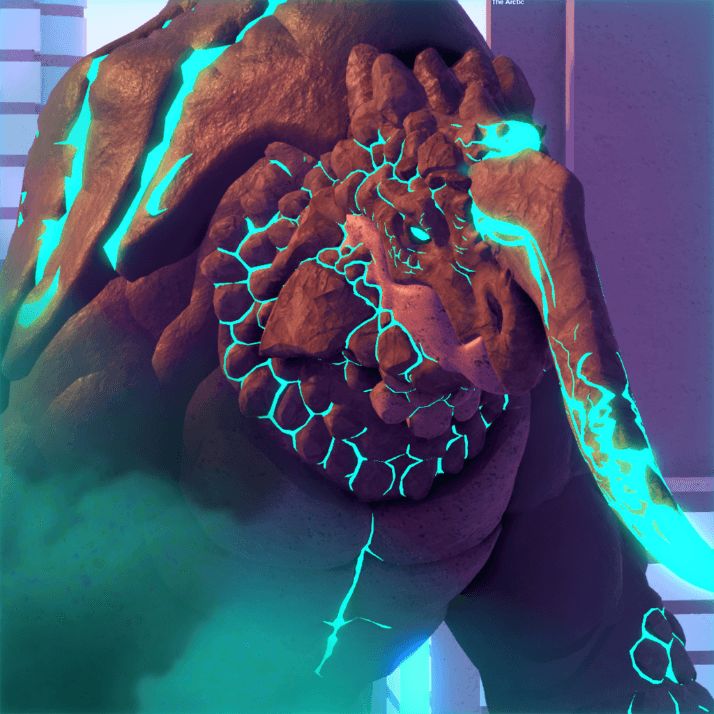
........................................................................................................................................................................................................................................................................................................................................................................................................................................................................................................................................................................................................................................................................................................
- 0
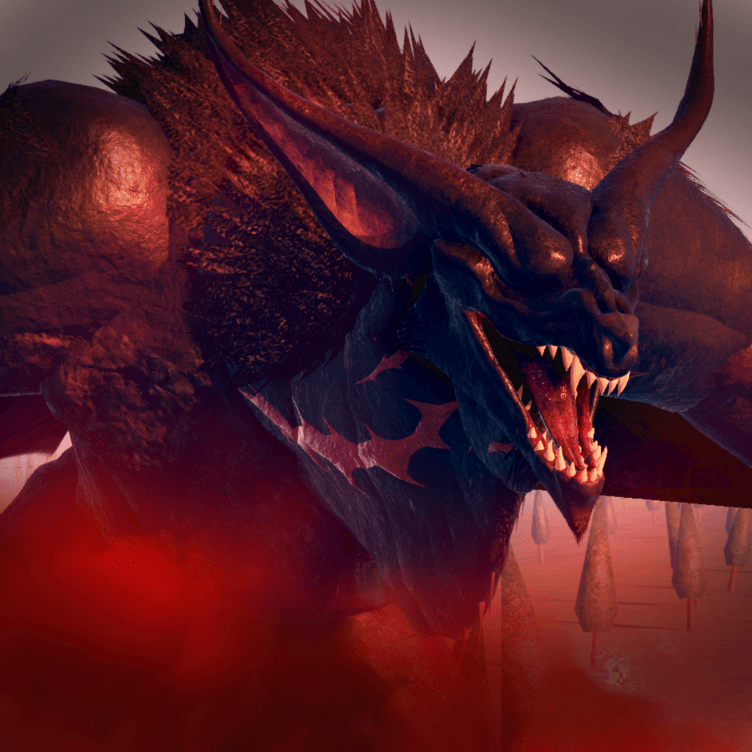
........................................................................................................................................................................................................................................................................................................................................................................................................................................................................................................................................................................................................................................................................................................
- 0

The Republic is a Socratic dialogue, written by Plato around 380 BC, concerning the definition of justice, the order and character of the just city-state and the just man—for this reason, ancient readers used the name On Justice as an alternative title (not to be confused with the spurious dialogue also titled On Justice). The dramatic date of the dialogue has been much debated and though it might have taken place some time during the Peloponnesian War, "there would be jarring anachronisms if any of the candidate specific dates between 432 and 404 were assigned". It is Plato's best-known work and has proven to be one of the most intellectually and historically influential works of philosophy and political theory. In it, Socrates along with various Athenians and foreigners discuss the meaning of justice and examine whether or not the just man is happier than the unjust man by considering a series of different cities coming into existence "in speech", culminating in a city called Kallipolis, which is ruled by philosopher-kings; and by examining the nature of existing regimes. The participants also discuss the theory of forms, the immortality of the soul, and the roles of the philosopher and of poetry in society.
- 0

"Nicomachean Ethics," written by the ancient Greek philosopher Aristotle, is a foundational text in Western philosophy. This work explores the nature of ethical virtue and the path to a good and fulfilling life. Aristotle delves into concepts such as happiness (eudaimonia), virtue (arete), and the importance of practical wisdom (phronesis). The text is a detailed examination of how individuals can achieve moral and intellectual virtues through habitual practice and rational deliberation.
- 0

Get personalized book recommendations powered by artificial intelligence. Our AI analyzes your reading preferences and suggests books that match your interests, helping you discover your next favorite read.
- 0

"The Bed of Procrustes" is a collection of aphorisms by Nassim Nicholas Taleb that distills his philosophical insights into short, thought-provoking statements. The title refers to the Greek myth of Procrustes, symbolizing the tendency to force things into unnatural conformity. Through these aphorisms, Taleb critiques modern society's flaws, biases, and misconceptions, offering a sharp, often humorous, commentary on topics ranging from knowledge and science to wealth and human behavior. This book is perfect for readers who enjoy deep, philosophical musings and appreciate Taleb's sharp wit and unconventional perspectives.
- 0

"Fooled by Randomness" is a thought-provoking book by Nassim Nicholas Taleb that delves into the role of chance in our lives and how we often mistake random events for meaningful patterns. Through a mix of personal anecdotes, philosophical insights, and statistical analysis, Taleb explores how randomness affects the world of finance, business, and daily life. The book challenges readers to rethink their perceptions of success, failure, and the forces that drive outcomes. This book is ideal for readers interested in finance, probability, and the philosophical implications of randomness.
- 0

Six days ago, astronaut Mark Watney became one of the first people to walk on Mars. Now, he’s sure he’ll be the first person to die there. After a dust storm nearly kills him and forces his crew to evacuate while thinking him dead, Mark finds himself stranded and completely alone with no way to even signal Earth that he’s alive—and even if he could get word out, his supplies would be gone long before a rescue could arrive. Chances are, though, he won’t have time to starve to death. The damaged machinery, unforgiving environment, or plain-old “human error” are much more likely to kill him first. But Mark isn’t ready to give up yet. Drawing on his ingenuity, his engineering skills—and a relentless, dogged refusal to quit—he steadfastly confronts one seemingly insurmountable obstacle after the next. Will his resourcefulness be enough to overcome the impossible odds against him?
- 0

A Wild Sheep Chase by Haruki Murakami is a strange, offbeat novel that blends a detective story with surreal, dreamlike elements. It follows an unnamed, easygoing narrator who gets pulled into a bizarre search for a mysterious sheep with a star-shaped mark on its back. The story kicks off when a powerful figure in Japan’s underworld pressures the narrator into finding this sheep, which seems to hold some kind of mystical influence. The book is set in late 1970s Japan, moving from urban Tokyo to the cold, isolated landscapes of Hokkaido. Along the way, the narrator is joined by his girlfriend, whose unusually perceptive ears give the story an added touch of the weird. They meet a cast of quirky characters—a shadowy secretary, a reclusive professor obsessed with sheep, and a man in a sheep costume who speaks in riddles. What stands out is how ordinary things—bars, hotels, quiet towns—become strange and otherworldly. Murakami mixes humor, loneliness, and philosophical musings, all wrapped up in a plot that meanders like a road trip with no clear destination. The novel touches on themes like identity, power, and the search for meaning, but it never hits you over the head with them. Things just kind of unfold, sometimes making sense, sometimes not—and that seems to be the point. It’s not a fast-paced thriller, nor is it a typical mystery. The journey is more about the odd encounters and the narrator’s inner reflections than solving a straightforward puzzle. If you’re into stories where reality feels slippery and the line between the ordinary and the surreal is blurred, this one might stick with you.
- -1

This was my go-to page at the early stages of learning Mandarin. Chinese Grammar Wiki has an articles of each of the main aspects of Chinese grammar. For example, there are articles on how to use 一下, 在, 要, 就是, 才and many other Mandarin grammar points. Each word gets its own article with examples in pinyin and characters and, of course, English translations. You can also get website as a physical book or an ebook.
- -1

Learn the essentials of creating and running a blog on the user-friendly platform systeme.io, as I highlight its free options, contrasting them with ClickFunnels’ steep pricing. The video serves not just as a technical guide but also as a motivational tool, with discussions on the ethical implications of business models in digital marketing. I share personal experiences and challenges faced during my own startup phase, making the session relatable and enriched with real-life applicability. Systeme.io’s Blogging Platform: How It Supports Aspiring Entrepreneurs: https://www.youtube.com/watch?v=fdyVXU_0G-0
- -1

Through a narrative of personal experience and technical explanation, I unravel the complexities behind the scenes of ad networks like Bing. I share insights into how unsuspecting marketers can fall prey to sophisticated bot schemes that click on ads without any intent to purchase, explaining the financial and psychological toll such deceptive practices can take on individuals striving to make it in digital marketing. Deciphering the Code: How Ad Networks Manipulate Traffic: https://www.youtube.com/watch?v=u-FNb7nEZew
- -1

In his enlightening discussion, Anders Larsson sheds light on the deceptive allure of quick success in digital marketing, advocating for a more grounded approach with platforms like TikTok and Admitad. Describing his own trials and errors in the field, he highlights how these platforms, although challenging, offer real opportunities for those who are creative and committed to authenticity. Anders' story is a call to action for marketers to seek out genuine paths to success, avoiding the traps of quick-fix solutions and focusing on building lasting value. Achieving Marketing Efficiency and Creativity with TikTok & Admitad: https://www.youtube.com/watch?v=G6LXujiWl60

